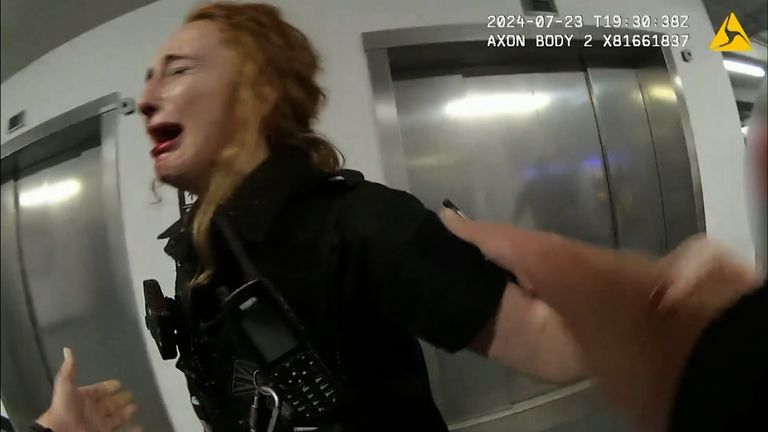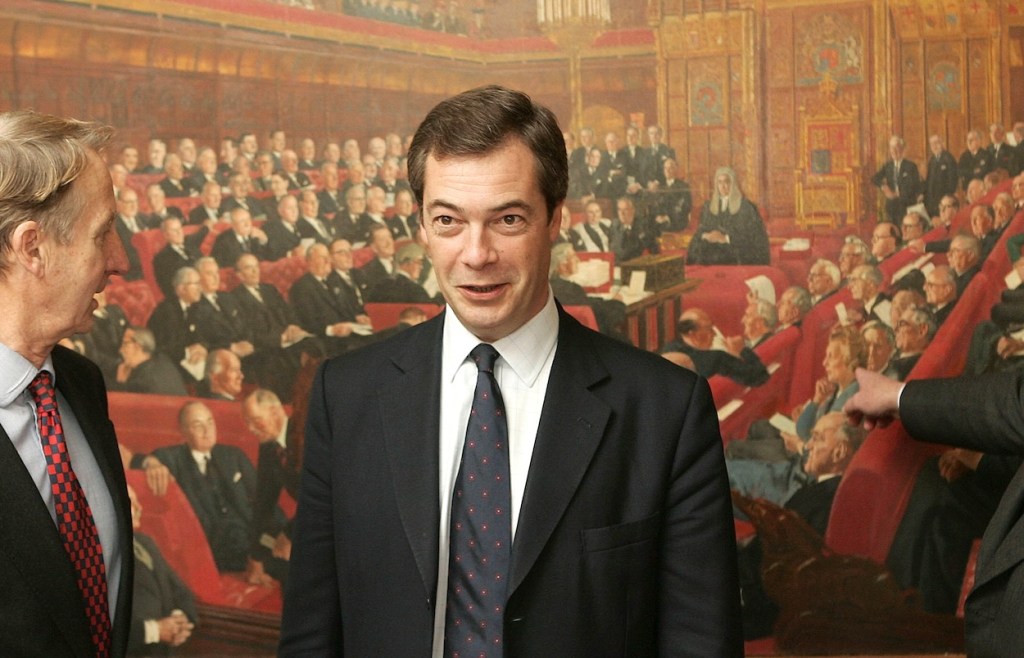On Wednesday at Liverpool Crown Court, Mohammed Fahir Amaaz, one of the two brothers accused of the Manchester Airport attack last July, was found guilty of assaulting two female police officers, as well as a member of the public. The jury was unable to reach a verdict on a charge that Amaaz and his brother, Muhammad Amaad, assaulted armed police officer PC Zachary Marsden. Both defendants will now be retried on that charge.
It has been a year since the viral incident at Manchester Airport. The question for many still is why Labour figures responded in the way they did – initially seeming to sympathise with the brothers rather than the police.
In the outrage, the other side of the story was scarcely acknowledged
It is worth reminding ourselves of the timeline here. The incident took place on 23 July 2024, and by the morning of 24 July, the footage of the infamous alleged head kick by PC Marsden, at the end of altercation, was going viral on social media. In the 14-second clip, Amaaz is lying face down as PC Marsden appears to kick him in the head, twice. For some, the incident had the makings of a George Floyd moment.
In the outrage, the other side of the story was scarcely acknowledged. Also on that day, Greater Manchester Police issued a statement about the incident in which it said that ‘officers were subject to a violent assault’ in the airport terminal, including a female officer who suffered a broken nose and had been taken to hospital. Graphic footage from the aftermath of this played in the trial, showing PC Lydia Ward bleeding profusely from her face (due to the Online Safety Act, this disturbing but important clip currently cannot be watched on X by many accounts). The head kick seemed shocking (an IOPC investigation is yet to conclude), but it should have been obvious that there was a wider context here. A cut-and-dry case of police brutality versus an innocent victim this was patently not, for all that it was being presented that way by many online.
Whatever had happened, the next question was whether the police officers would have political backing after their ordeal. ‘Police officers in Manchester work in a difficult, dangerous, and dynamic world where there is no such thing as a routine incident’, said the Greater Manchester Police Federation in a statement on Wednesday, before adding pointedly: ‘They deserve support in that work from the public and politicians.’
But as it turned out, precious little support was to be had from the relevant political players. Take the local Labour MP for Rochdale, Paul Waugh. By 25 July, Waugh was clearly aware that officers had been injured, having noted it in a statement online expressing concern about the footage.
Yet when he spoke in Parliament that day, he neglected to mention this highly salient fact. The clip was ‘truly shocking and disturbing’ he said, calling for a debate on police conduct. Leader of the Commons Lucy Powell thanked him for his question, agreed that the footage was ‘incredibly disturbing’, and noted that an Independent Office of Police Complaints investigation had been launched into the officer involved. No one who listened to this exchange would have had any idea that the man they were talking about had just assaulted two female police officers, or that the incident began after the 20-year-old student headbutted another passenger in a coffee shop. (A spokesperson for Waugh told me that on that day, he extended his sympathies to the officers involved ‘directly’.)
Later that day, Waugh even went and visited the brothers and their family in their home. Speaking to the BBC about the visit the next morning, he intoned that the brothers were ‘traumatised’ – ‘just imagine if that was your brother… your son, in that video’ – and called for ‘justice’.
Two days later, footage of the attack against the officers emerged which dramatically shifted the focus. Waugh then insisted that he had ‘consistently put on record’ his concerns for the officers.
So much for the local Labour MP, but what about the woman whose job it is to oversee the police? Home Secretary Yvette Cooper also waded in on 25 July to say that the video had caused ‘distress’ and that police need to ‘have the trust of communities’ and to operate to ‘high standards’. Her statement made clear that she had been briefed by the police at this point, and the fact that officers were injured had been in the public domain for a whole day – so was it really not worth a mention? Nor did she call for people not to speculate off the back of social media footage, a typical official response at such times. Asked about the omission earlier this month by Times Radio, Cooper said: ‘I have always and continually offered strong support to police officers, who face appalling situations every day of the week.’ Only the previous night, she said, she had been to her 15th Police Bravery Awards – in a row!
Labour’s response to the incident is vital context for public perceptions of the government crackdown on the unrest that followed the Southport massacre. In its first month in office, the Labour government was perceived to be displaying an instinctively soft touch toward minorities on issues of law and order – something we also saw in Cooper’s conciliatory response to the rioting that month in hyper-diverse Harehills, Leeds. As for the Manchester incident, the key context is that after the initial arrest, a sectarian mob had assembled at Rochdale police station on 24 July to demand the release of the suspects and issue threats.
Then, suddenly, when there was white working-class unrest after the horror of Southport, Labour figures including the prime minister came out flinty and fuming, denouncing all involved as ‘far-right thugs’. Labour’s response to the Manchester Airport incident is a reminder why the ‘two-tier Keir’ epithet has stuck in the public mind.







Comments